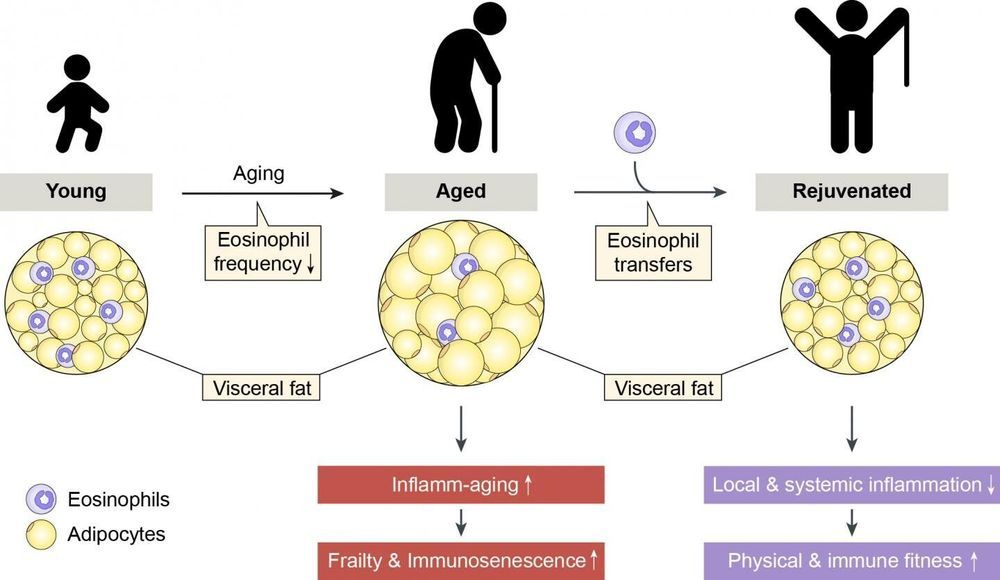Elderly people are more prone to infectious diseases as the function of their immune system continuously declines with progression of age. This becomes especially apparent during seasonal influenza outbreaks or the occurrence of other viral diseases such as COVID-19. As the efficacy of vaccination in the elderly is strongly reduced, this age group is particularly vulnerable to such infectious pathogens and often shows the highest mortality rate. In addition to the age-related immune decline aged individuals are commonly affected by frailty that negatively impacts quality-of-life. Even though the average life-expectancy for humans continuous to rise, living longer is often associated with age-related health issues.
Important role of belly fat in aging processes identified
Researchers from the Department for BioMedical Reserarch (DBMR) and the Institute of Pathology at the University of Bern as well as the University Hospital Bern (Inselspital) have set out to identify new approaches to improve health-span in a fast-growing aging population. For many years scientists speculated that chronic low-grade inflammation accelerates aging processes and the development of age-related disorders. An international team of researchers under Bernese guidance has now demonstrated that visceral adipose tissue, known as belly fat, crucially contributes to the development of chronic low-grade inflammation. Scientist around Dr. Mario Noti, formerly at the Institute of Pathology of the University of Bern and Dr. Alexander Eggel from the Department for BioMedical Research (DBMR) of the Universität of Bern reported that certain immune cells in the belly fat play and an essential role in regulating chronic low-grade inflammation and downstream aging processes.










Comments are closed.